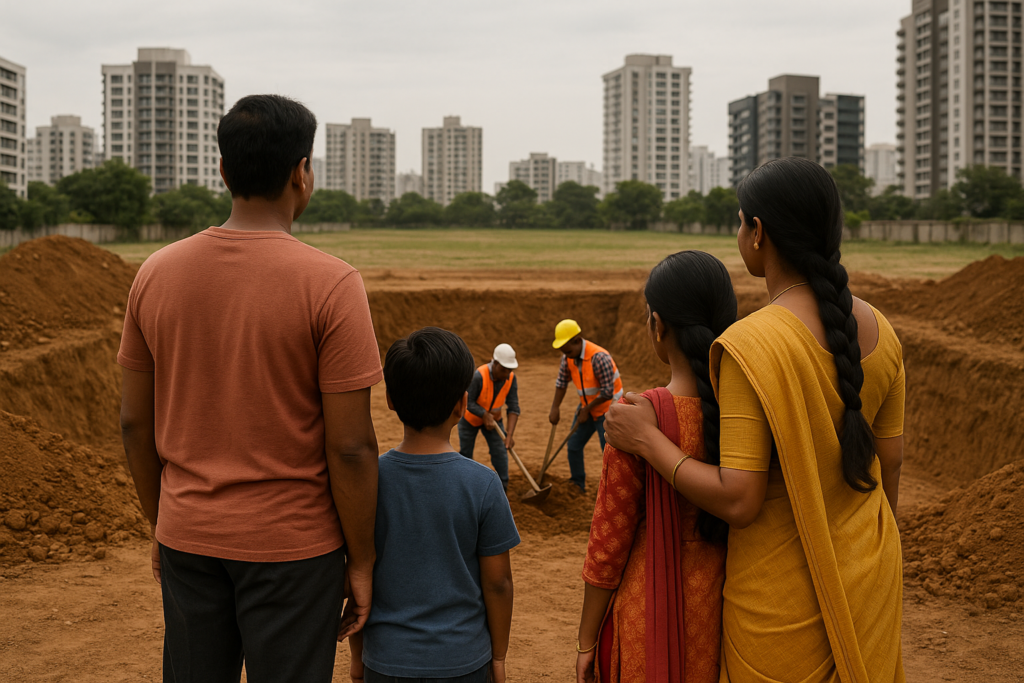
Building Starts from the Ground Up
Before laying a single brick, the ground must be understood. That’s where soil testing for construction comes in. Although often overlooked, soil testing is the cornerstone of safe, stable structures. Consequently, knowing your site’s soil profile ensures your foundation won’t crack under pressure—literally.
What Is Soil Testing in Construction?
In essence, soil testing refers to the geotechnical assessment of a proposed construction site. Engineers extract and analyze soil samples to determine their suitability for supporting structures. Since different soils behave differently under load and moisture, testing reveals potential risks in advance.
Why Is Soil Testing Important Before Construction?
Here are four key reasons why you must test the soil:
Foundation Design – Accurate data leads to customized, stable foundation systems.
Settlement Control – Avoid uneven settling that causes structural issues.
Moisture & Drainage – Identify issues that can lead to cracks or water logging.
Legal Compliance – Soil testing is often a prerequisite for construction approval.
Thus, soil testing saves you from future repairs, delays, and legal complications.
Common Types of Soil Tests and Their Purpose
Each soil test provides critical data:
| Test Name | Purpose |
|---|---|
| Standard Penetration Test (SPT) – IS 2131 | Measures soil resistance and density. |
| Atterberg Limits – IS 2720 (Part 5) | Determines soil plasticity and consistency. |
| Plate Load Test – IS 1888 | Finds bearing capacity for foundation design. |
| California Bearing Ratio (CBR) – IS 2720 (Part 16) | Assesses subgrade strength for roads. |
| Permeability Test – IS 2720 (Part 17) | Measures water flow through soil. |
| Triaxial Shear Test – IS 2720 (Part 11) | Determines shear strength of cohesive soil. |
Because every construction site is unique, a geotechnical engineer selects suitable tests based on local conditions and structure type.
Standard Soil Testing Procedures You Should Know
Professional soil testing follows Indian Standards (IS codes) to maintain consistency and reliability. Here’s how it’s typically done:
Site Visit & Borehole Drilling – Boreholes are drilled 1.5 to 3 meters deep (or more), based on building height.
Soil Sampling – Disturbed and undisturbed soil samples are collected using Shelby tubes or split spoon samplers.
Laboratory Testing – Soil samples are sent to NABL-accredited labs (like Jancy Labs) for testing per IS 2720 series.
Report Preparation – A detailed report includes soil classification, bearing capacity, water table level, and foundation recommendations.
Consequently, adhering to IS codes not only improves design accuracy but also ensures legal and safety compliance.
How Much Does Soil Testing Cost?
In India, the cost of soil testing for a house ranges from ₹5,000 to ₹25,000, depending on:
Plot size and location,
Depth of investigation,
Type and number of tests needed.
Though some see this as an optional cost, it is actually a small investment that prevents major foundation issues later.
What If the Soil Is Not Suitable?
Fortunately, poor soil does not mean the end of your project. Instead, engineers may recommend:
Soil stabilization using cement, lime, or polymers,
Replacing or compacting soft layers,
Using deep foundations, like piles or raft foundations,
Installing drainage systems for waterlogged soil.
Thus, a problematic site can still support a stable building—with the right engineering approach.
Legal Requirements: Is Soil Testing Mandatory?
Yes, in most urban municipalities and panchayats, soil testing is mandatory before construction. Builders must often submit the soil investigation report when applying for:
Planning permissions,
Structural design approvals,
Environmental or safety clearances.
Therefore, skipping it can cause regulatory delays—or even lead to rejected plans.
Test the Soil, Build with Confidence
To summarize, soil testing for construction is not just about science—it’s about security, sustainability, and smart planning. It identifies potential problems before they become structural failures. It ensures legal compliance, supports accurate foundation design, and saves long-term costs.
Whether you’re building a home, commercial structure, or road—start with a soil test. Because everything strong starts from the ground up.
Contact Information
Registered Office & Laboratory Address
Jancy labs Pvt Ltd,
No.6,Ganesh Nagar 3rd street, Surya Nagar, Alagar kovil main road, K.Pudur, Madurai-625007
Phone Numbers :
+91-8680049004 , +91-9994421275
Email : jancylabsmdu@gmail.com
Working Hours :
Monday to Saturday : 10:00 AM – 6:00 PM
Leave Your Enquiry, We’ll Call You Back
We understand your time is valuable! Simply leave your details below, and our team will get back to you as soon as possible.
